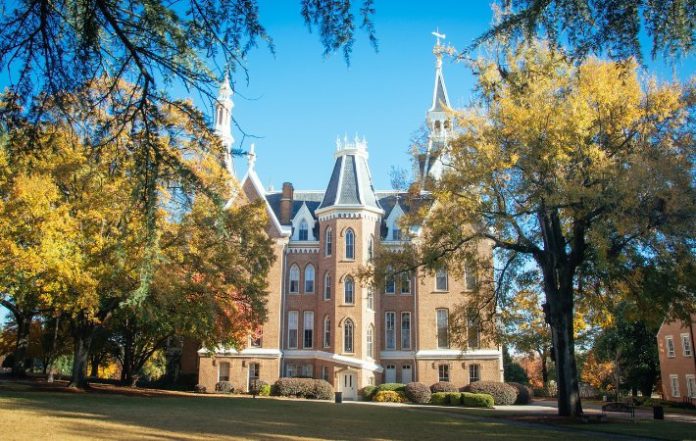MACON – The Center for Southern Studies in Mercer University’s College of Liberal Arts has been named for the late Dr. Spencer B. King Jr., who was instrumental in the program’s formation more than 60 years ago. A highly competitive grant from the National Endowment for the Humanities (NEH) was awarded to Mercer, and the King family has made a major endowment commitment to help underwrite the Center.
“Dr. Spencer B. King Jr. played a vital role in the College of Liberal Arts. As longtime chair of Mercer’s History Department, Dr. King introduced many of the courses that became core components of the Southern Studies Program,” said Dr. Sarah Gardner, professor of history and Center director. “His colleagues throughout the College, University and across the state acknowledged Dr. King as a respected scholar, author, teacher and mentor. I can think of no more appropriate person for whom the Center should be named.”
“In this age of technologic acceleration, the need for education in the humanities is more important than ever,” said Dr. Spencer B. King III, Mercer trustee, alumnus and Dr. Spencer B. King Jr.’s son.
The Spencer B. King Jr. Center for Southern Studies is home to the Lamar Memorial Lecture Series, founded by Dr. King and Dr. Ben Griffith and now the nation’s most prestigious on southern history, literature and culture, and the recently established Laurie Byington Lectures on the Contemporary South. The Center offers an interdisciplinary undergraduate major that studies the region from multiple perspectives, including courses in African-American studies, English, history, political science and cultural studies. It also offers Southern Semester, a unique opportunity for students from American and international universities to learn about and to experience the people, history and culture of the U.S. South.
In addition, the Center publishes the Journal of Southern Religion and annually awards the Sidney Lanier Prize for Southern Literature, which recognizes significant career contributions to southern writing. Past recipients include Ernest Gaines, Lee Smith, Elizabeth Spencer, Yusef Komunyakaa and Wendell Berry.
“Mercer University’s Spencer B. King Jr. Center for Southern Studies is one of the premier Southern Studies programs that focuses on the undergraduate experience,” said Dr. Anita Olson Gustafson, dean of the College of Liberal Arts. “The ongoing support of the King family will allow the College to further enhance the Center’s national reputation and build on the legacy of Spencer B. King Jr. We are very grateful for this investment in the future of Southern Studies at the University.”
Dr. King joined the Mercer faculty in 1947 and retired in 1973. During his tenure he developed a series of new courses focused on Southern history and culture, including the history of the Old South and New South and the history of Georgia. Dr. King was also widely recognized for both his historical scholarship and his ability to share history with a popular audience. His emphasis on primary sources and social history resulted in many titles, including Ebb Tide, The Wartime Journal of a Georgia Girl, Darien, Georgia Voices: A Documentary History to 1872, as well as the standard school textbook, The History of Georgia. During the Civil War’s Centennial, Dr. King wrote a series of articles for the Macon Telegraph, which were collected as Sound of the Drums and published by Mercer University Press in 1984. As a scholar, Dr. King’s research and writing was expansive in its coverage of the South, but special attention was always focused on Georgia. He also made significant contributions to understanding the history of Baptists in Georgia and served as president of the Southern Baptist Historical Society.
In 2015, the NEH awarded the Spencer B. King Jr. Center for Southern Studies a $500,000 challenge grant to support establishment of an endowment for programming and outreach activities. NEH challenge grants are capacity-building grants, intended to help institutions and organizations secure long-term support for their humanities programs and resources. Through these awards, recipients have been able to increase their humanities capacity and secure the permanent support of an endowment.










